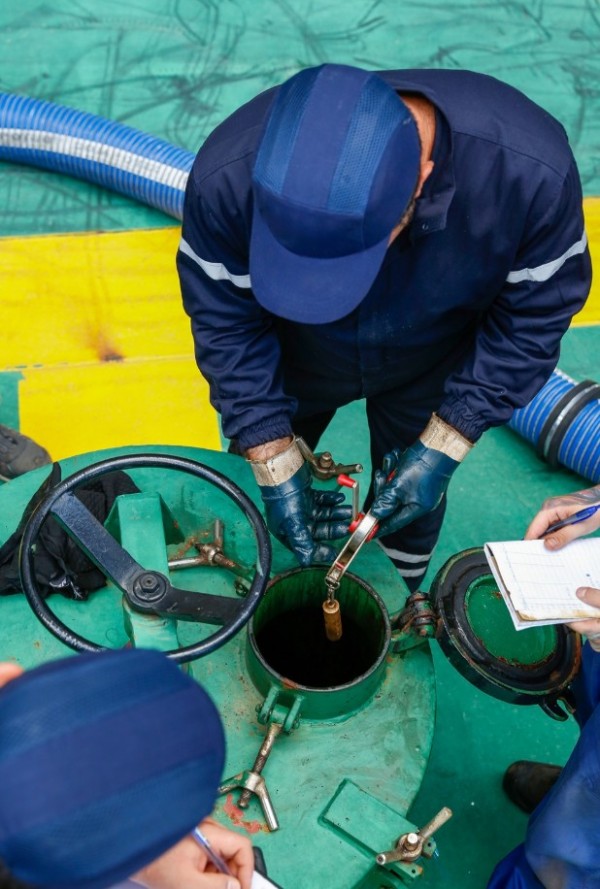Business News Marine biofuel testing will mitigate risks
페이지 정보
작성자 최고관리자 댓글 0건 조회 1,364회 작성일 25-03-22 13:35본문
Marine biofuel testing will mitigate risks
With blends ranging from 10% biodiesel to 100% pure FAM marine biofuels can lead to fuel instability, corrosion, and mechanical wear . CMT advises frequent fuel analysis
As shipping increases its use of biofuels to meet stricter emissions regulations, CM Technologies (CMT) is urging shipowners to adopt rigorous monitoring practices to mitigate the risks posed by biodiesel blends.
While these fuels are seen as a key pathway to decarbonisation, their chemical make-up presents new operational challenges.
“The push for biofuels is transforming marine fuel strategies,” said David Fuhlbrügge, CMT’s Co-Managing Director. “But with that shift comes the need for greater diligence. Operators must actively monitor fuel quality to prevent issues that could compromise engine efficiency, reliability, and compliance.”
The IMO’s emissions targets and the latest ISO 8217:2024 fuel standards have cleared the way for higher biofuel content in marine fuels, with blends ranging from 10% biodiesel to 100% pure FAME. However, without proper oversight, biofuels can lead to fuel instability, corrosion, and mechanical wear, driving up maintenance costs and increasing operational risks.
For instance, DNV research has found the solvent-like nature of biofuels can dislodge tank residues, clogging filters and separators. The higher acidity in biofuels also risks increased corrosion, making lubrication adjustments essential. Higher BN (Base Number) lubricants will be required to neutralise acids and protect components from excessive wear. Biofuels also absorb more water, which fosters microbial growth and fuel degradation.
The latest CIMAC advisory also highlights concern over high FAME (Fatty Acid Methyl Ester) content, particularly with regards to fuel stability and long-term storage.
“Research has reinforced the need for biofuel users to regularly monitor fuel and engine performance,” said Fuhlbrügge. “Biofuels do offer sustainability benefits, but without the right monitoring and management, they can result in long-term engine damage, significant downtime and costs. Marine engines designed for conventional fuels will require operational adjustments to handle high biofuel concentrations, while fuel heating and purification systems should also be optimised for biofuel properties.”
CMT has seen a surge of interest for its test kits from the cruise industry, indicating the sector’s preference for the fuel as a way of meeting sustainability goals.
“When different fuels are blended onboard, the risk of fuel instability and compatibility issues increases, so it is important ship managers and crews continue to test and monitor this fuel regularly,” Fuhlbrügge said.
“The low energy density of some biofuels could also mean more fuel is required to maintain voyage range. This will certainly impact bunkering strategies and procurement planning, making compatibility testing essential when mixing biofuels with conventional fuels. Otherwise fuel and lube oil inconsistencies could be missed leading to unexpected cruise itinerary cancellations.”
With feedstock variability and different blending methods, CMT advises shipowners to implement strict testing protocols for viscosity, stability, and water content analysis. These checks help validate biofuel batches before use, preventing unexpected performance issues.
“With tightening fuel standards and alternative fuels becoming mainstream, shipowners must adopt systematic fuel monitoring to safeguard engine reliability and regulatory compliance,” said Fuhlbrügge.
The testing regime CMT recommends involves comprehensive initial fuel analysis, regular periodic testing, and continuous monitoring of critical performance parameters. Its biofuel test kits provide operators with precise, actionable insights that go beyond traditional fuel assessment methodologies.
“It's not simply about reducing carbon emissions, it's about understanding the complex chemical interactions happening within engine systems when we introduce higher biofuel percentages."
■ Contact: CMT https://cmtechnologies.de/en













